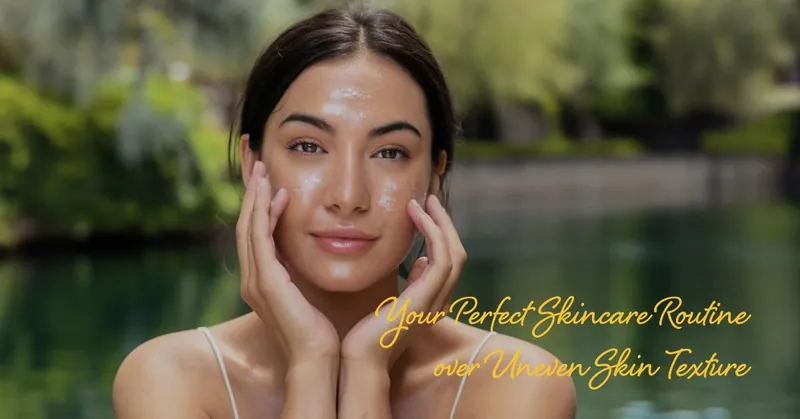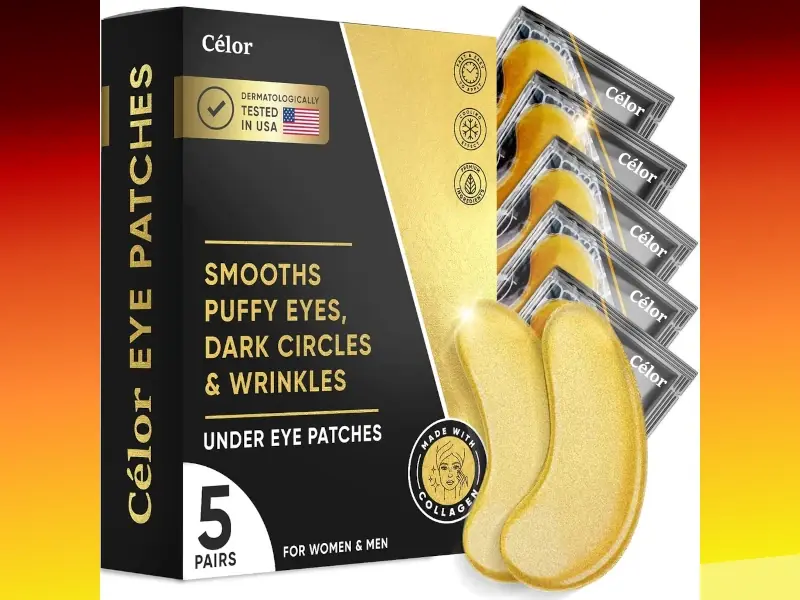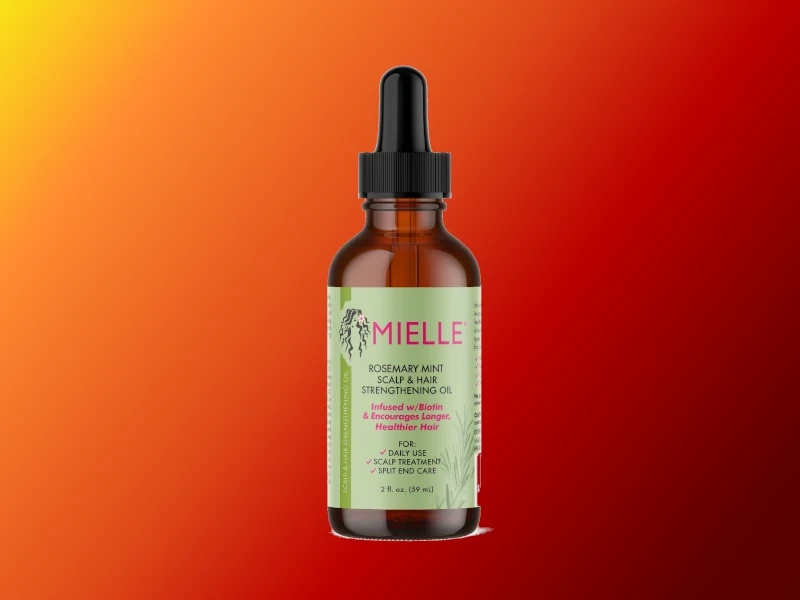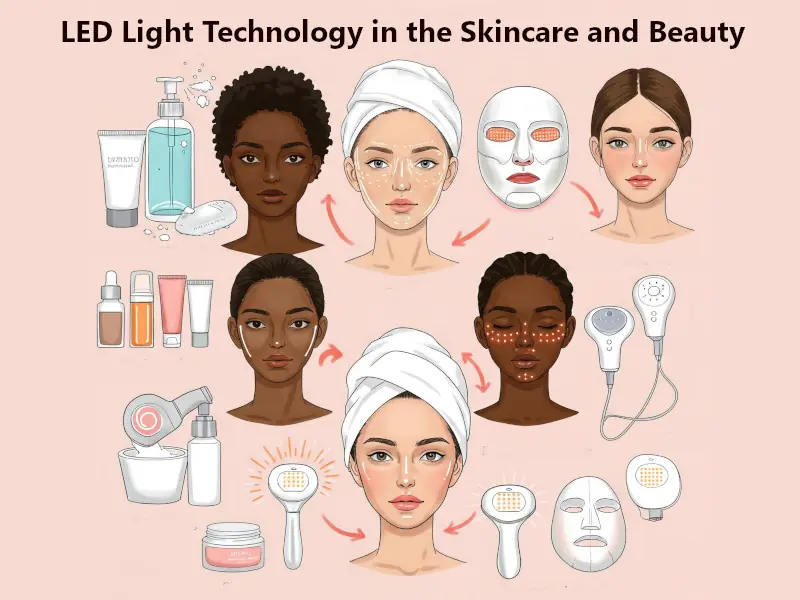Uneven Skin Texture: Causes and Solutions for a Smooth Complexion

A smooth, even complexion is a coveted beauty ideal, but achieving it can often feel like an elusive dream. Uneven skin texture, characterized by roughness, bumpiness, or flakiness, is a common concern that can affect people of all ages and skin types. This frustrating issue can stem from various factors, including environmental damage, aging, underlying skin conditions, and even lifestyle choices.
The good news is that understanding the causes of uneven skin texture and adopting a proactive approach to skincare can help you achieve a smoother, more radiant complexion. In this comprehensive guide, we’ll delve into the complexities of uneven skin texture, explore its root causes, and uncover effective solutions to restore your skin’s natural smoothness and luminosity.
Understanding Uneven Skin Texture
Uneven skin texture manifests in various ways, including:
- Roughness: The skin feels coarse or bumpy to the touch, often due to the buildup of dead skin cells or underlying dryness.
- Bumpiness: Small bumps or raised areas on the skin surface can be caused by acne, clogged pores, or other skin conditions.
- Flakiness: Dry, flaky skin can create an uneven texture, especially during colder months or in dry climates.
- Dullness: Uneven skin texture can also contribute to a lackluster complexion, as light doesn’t reflect evenly off the skin’s surface.
- The Culprits Behind Uneven Skin Texture
Several factors can contribute to uneven skin texture:
- Dead Skin Cell Buildup: As skin cells age, they naturally shed from the surface. However, sometimes this process slows down, leading to an accumulation of dead cells that create a rough, uneven texture.
- Dryness: When the skin lacks moisture, it can become flaky and rough. Dryness can be caused by various factors, including environmental conditions, harsh skincare products, and underlying skin conditions like eczema or psoriasis.
- Clogged Pores: Pores can become clogged with excess oil, dirt, and debris, leading to blackheads, whiteheads, and an overall uneven texture.
- Acne and Scarring: Acne breakouts can leave behind scars and uneven texture.
- Sun Damage: Prolonged sun exposure can damage collagen and elastin fibers, leading to wrinkles, fine lines, and a loss of skin elasticity, which can contribute to an uneven texture.
- Aging: As we age, our skin’s natural cell turnover slows down, and collagen and elastin production decreases. This can lead to thinner, less resilient skin with a more uneven texture.
- Hyperpigmentation: Uneven pigmentation, such as sunspots or melasma, can create a patchy and uneven skin tone.
- Keratosis Pilaris: This common skin condition causes small, rough bumps on the skin, often on the upper arms, thighs, and cheeks.
Achieving a Smooth Complexion: Effective Solutions for Uneven Skin Texture
While achieving a perfectly smooth complexion may not be possible for everyone, there are numerous strategies and treatments available to significantly improve skin texture and minimize its unevenness.

Skincare Routine
- Gentle Cleansing: Cleanse your face twice daily with a gentle cleanser that won’t strip your skin of its natural oils. Avoid harsh soaps and cleansers that can disrupt the skin barrier and lead to dryness and irritation.
- Exfoliation: Regular exfoliation is crucial for removing dead skin cells and promoting a smoother texture. Choose an exfoliator suitable for your skin type:
- Physical Exfoliators: Scrubs or brushes that manually remove dead skin cells. Use them gently to avoid irritation.
- Chemical Exfoliators: Products containing alpha hydroxy acids (AHAs) or beta hydroxy acids (BHAs) that dissolve the bonds between dead skin cells, allowing them to slough off naturally.
| Exfoliator Type | Benefits | Considerations |
|---|---|---|
| Physical Exfoliators | Deeper exfoliation Can target specific concerns like acne or hyperpigmentation | It may cause tingling or redness initially, Requires patch testing |
| Chemical Exfoliators | Deeper exfoliation, Can target specific concerns like acne or hyperpigmentation | May cause tingling or redness initially, Requires patch testing |
- Hydration: Keeping your skin well-hydrated is essential for a smooth complexion. Use a moisturizer that’s appropriate for your skin type and contains hydrating ingredients like hyaluronic acid or ceramides.
- Sun Protection: Apply sunscreen with a broad spectrum SPF of at least 30 every day to protect your skin from sun damage, which can contribute to uneven texture and premature aging.
- Retinoids: Retinoids, derived from vitamin A, increase cell turnover, unclog pores, and stimulate collagen production, leading to smoother, more even-toned skin. Start with a low concentration and gradually increase as tolerated.
- Vitamin C: This powerful antioxidant protects against free radical damage and promotes collagen synthesis, helping to improve skin texture and reduce the appearance of hyperpigmentation.
Professional Treatments
For more intensive results or to address specific concerns, consider these professional treatments:
- Chemical Peels: Chemical peels use acids to exfoliate the top layer of skin, revealing a smoother, more even-toned complexion.
- Microdermabrasion: This procedure uses a minimally abrasive instrument to gently sand the skin, removing the thicker, uneven outer layer and promoting collagen production.
- Laser Therapy: Laser treatments can target specific concerns like acne scars, hyperpigmentation, and wrinkles, helping to improve skin texture and tone.
- Microneedling: This treatment involves creating tiny punctures in the skin with fine needles, which triggers the skin’s natural healing process and promotes collagen and elastin production.
Lifestyle Factors
In addition to skincare and professional treatments, certain lifestyle choices can significantly impact your skin’s texture:

- Healthy Diet: A diet rich in fruits, vegetables, whole grains, and lean protein provides essential nutrients that support skin health and collagen production. Avoid processed foods, sugary drinks, and excessive dairy, which can trigger inflammation and worsen skin conditions.
- Hydration: Drink plenty of water throughout the day to keep your skin hydrated and plump. Aim for at least eight glasses of water daily.
- Stress Management: Chronic stress can increase oil production and worsen skin conditions. Practice stress-management techniques like yoga, meditation, or deep breathing exercises.
- Adequate Sleep: Aim for 7-8 hours of quality sleep each night to allow your body to repair and regenerate, including your skin.
- Quit Smoking: Smoking constricts blood vessels, reducing blood flow to the skin and depriving it of essential nutrients and oxygen. It also damages collagen and elastin, leading to wrinkles and premature aging.
Addressing Specific Concerns
- Acne and Scarring: If acne is contributing to your uneven skin texture, consult a dermatologist for treatment options. They may recommend topical medications, oral antibiotics, or other therapies to manage breakouts and minimize scarring.
- Hyperpigmentation: Use products containing ingredients like vitamin C, hydroquinone, or kojic acid to lighten dark spots and even out skin tone.
- Keratosis Pilaris: While there’s no cure for keratosis pilaris, regular exfoliation and moisturizing can help improve its appearance. Look for products containing urea, lactic acid, or salicylic acid.
Additional Tips for Smoother Skin
- Avoid Harsh Products: Steer clear of harsh soaps, cleansers, and exfoliators that can strip your skin of its natural oils and disrupt the skin barrier.
- Don’t Over-Exfoliate: While exfoliation is essential, overdoing it can lead to irritation and further damage your skin’s texture. Stick to the recommended frequency for your skin type.
- Use Lukewarm Water: Hot water can dehydrate and irritate your skin. Opt for lukewarm water when cleansing and showering.
- Pat Your Skin Dry: Avoid rubbing your skin dry with a towel, as this can cause friction and irritation. Gently pat your skin dry instead.
- Be Gentle: When applying skincare products, use gentle, upward motions to avoid tugging or pulling on the skin.
The Importance of Patience and Consistency
Achieving a smoother complexion takes time and dedication. Don’t expect overnight results. Be consistent with your skincare routine, make healthy lifestyle choices, and be patient. With time, you’ll start to see improvements in your skin’s texture and overall appearance.
When to Seek Professional Help
If you’re struggling with severe uneven skin texture or other skin concerns, don’t hesitate to consult a dermatologist. They can assess your skin, diagnose any underlying conditions, and recommend personalized treatment options to help you achieve your skincare goals.
Conclusion
Achieving a smooth, even complexion requires a holistic approach that combines consistent skincare, healthy lifestyle choices, and professional treatments when needed. By understanding the causes of uneven skin texture and adopting a proactive approach, you can transform your skin and achieve a radiant, youthful glow.
Remember, patience and consistency are key. It takes time to see results from any skincare routine or treatment. Be kind to your skin, avoid harsh products and practices, and don’t hesitate to seek professional guidance if you have any concerns. You can achieve the smooth, healthy skin you desire with dedication and the right approach.
Source:
- What are the ways to treat your Uneven Skin Texture?
https://www.dermaessentia.com/blogs/knowledge/uneven-skin-texture - 14 Treatments for Uneven Skin Texture That Dermatologists Swear By
https://www.byrdie.com/how-to-fix-uneven-skin-texture-4686864 - 8 Ways to Get Rid of Uneven Skin Texture
https://www.instyle.com/uneven-skin-texture-7966691 - An Expert-Backed Guide to Improve Uneven Skin Texture
https://www.wikihow.com/Improve-Skin-Texture
Frequently Asked Questions(FAQs): Your Path to Smoother Skin
Trust in your purchase:
Every product featured on our site has been carefully researched and selected based on quality, customer ratings, and positive reviews to ensure you receive excellent value for your money.
Please note:
This post contains affiliate links. If you make a purchase through these links, we may earn a small commission at no additional cost to you. This helps support our site and allows us to continue bringing you valuable content. Thank you!
Thank you for your precious time spent with AestheticThrive.






